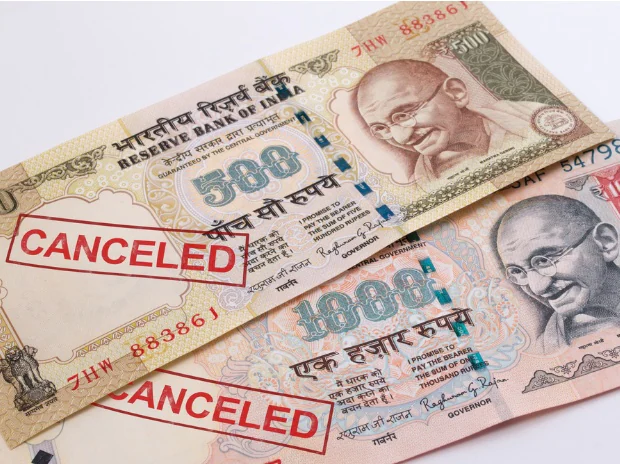In its first sitting post the winter recess, the Supreme Court will adjudicate on Monday, on a batch of petitions challenging the government’s November 2016 decision to demonetise Rs 500 and Rs 1,000 currency notes.
According to the Apex court’s cause-list — the list of business of the court — there will be two judgments, one by Justice B R Gavai and another by Justice B V Nagarathna. It remains to be seen whether these are concurring or dissenting views.
A five-judge Constitution bench presided by Justice S Abdul Nazeer had reserved the verdict on December 7 after hearing elaborate arguments by the petitioners, the Centre and the Reserve Bank of India (RBI).
The bench, also comprising Justices A S Bopanna and V Ramasubramanian, had asked the government and the RBI to produce records relevant to the decision-making process leading to the November 8, 2016 notification.
Taking up the batch of 58 petitions challenging various aspects of the government’s noteban decision, the Supreme Court had initially wondered if it had not become merely an academic debate given the passage of time. It subsequently decided to go into the issue, with the petitioners contending that the procedure prescribed in Section 26(2) of RBI Act, 1934, was given a go by.
Appearing for a petitioner, Senior advocate P Chidambaram contended that as per the particular section, the recommendation should have “emanated” from the RBI, but in this case, the government had advised the central bank, following which it made the recommendation. He said when earlier governments had demonetised currency — in 1946 and 1978, they had done so by way of a law made by Parliament.
Chidambaram also accused the government of withholding documents related to the decision-making process from the court and raised doubts whether the quorum as required for the RBI Central Board meeting was met.
Attorney General R Venkataramani sought to explain that demonetisation was not an isolated act, but part of a broader economic policy, and therefore it is not possible for the RBI or the government to act in isolation. “They act in consultation…,” he submitted.
Chidambaram had argued that under Section 26(2), the government cannot demonetise all series of notes of a denomination. He urged the court to read down the provision so that the expression “any” therein will be read as “some”.
Opposing this, Gupta said such an interpretation will create “nothing but confusion”.
Also Read: Mondays With Manjul, January 2











